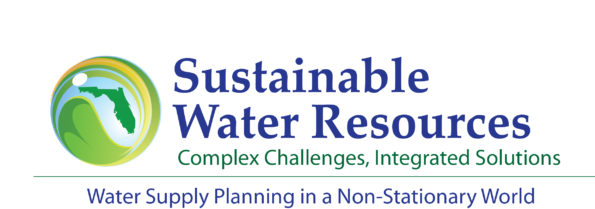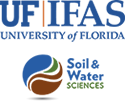
4th UF Water Institute Symposium
The 4th UF Water Institute Symposium continued the success of previous symposia providing an unparalleled venue for exploring the multidisciplinary scope of critical science, policy and management issues fundamental to securing Florida’s water future. The two-day event brought over 325 scientists, engineers, faculty, students, water related professionals and private citizens together from academic, industry, agricultural, environmental, governmental and non-governmental organizations, to focus on issues surrounding “Water Supply Planning in a Non-Stationary World.” Over 150 contributed oral and poster presentations and several panel discussions in 5 major themes tackled complex issues related to water supply planning from multiple perspectives. In addition, the final plenary session included a panel of leaders of Florida’s agencies responsible for water planning and management, followed by a panel exploring the role of grass-roots versus political leadership in establishing a Water Ethic in Florida.
The two day event provided stimulating ideas and insights into recent successes and new challenges to water supply planning as well as new research, education, policies and programs that should be developed to ensure successful water supply planning for the coming decades. This Water Institute flagship event is unmatched in stimulating interaction, networking and learning about sustainable water resources from multiple perspectives.
Impacts of Changing Drivers on Water Resources
Change, and an increasing pace of change are presenting new challenges to scientists, managers, policy makers and the public engaged in sustainable water resources planning. Water resource planning and management requires integrated and innovative strategies for understanding current and future conditions and anticipating the consequences of change on water resources. Presentations reflecting this theme addressed understanding and predicting impacts of changing drivers (population, land use, climate, sea level, water demand, markets, policies and regulations) on water resources (e.g. rivers, lakes, wetlands, aquifers, springs, etc.)
Water Quality Protection and Treatment
Providing sufficient water of appropriate quality for human consumption, agricultural irrigation and natural ecosystems is a major challenge for water supply planning that requires a myriad of innovative technical, social, and legal approaches. Engineering, management, policy and regulatory options to address water quality must be informed by science, understood by stakeholders and supported by tools and technologies accessible to decision-makers. Presentations addressing this theme focused on implications of water quality protection, restoration and treatment processes and programs for water supply planning and recent regulatory, technological and scientific developments to assess, protect, restore and treat water bodies and water supplies.
Managing Water for People and the Environment
Today’s water management challenges inextricably link ecosystems and human welfare, a challenge which is intensified under changing climate, population growth and urbanization. There is a growing recognition of the need to properly balance the allocation of resources among present versus future needs. Society is faced with inevitable trade-offs between restoration and preservation of ecosystems and the services they provide, and the social and economic benefits provided by other forms of human activity (agriculture, industry, urban development). Policy and decision-making on water resources requires a wide range of information that considers not only not only economic benefits, but the social and environmental benefits as well. Presentations encompassing this theme focused on new science, technologies, and policies for sustainable water allocation.
Water Security: the Water-Energy-Food Nexus
Water security – adequate water for health and welfare of the population, economic progress, and ecological integrity; and acceptable levels of water-related risks – is a growing concern for many parts of the world, including Florida. Threats to water security from population growth, climate change (drought, flood), sea level rise and salt water intrusion, and emerging contaminants are major concerns. This theme drew presentations on recent and proposed efforts to assess water security and the need to respond to real and perceived threats. Presentations ranged from water focused on energy production (hydroelectric, biofuels, biomass) and alternative water supply opportunities for utilities.
Science, Stakeholders and Decision-Making
In order to sustain our water resources in a rapidly changing world it is important to enable stakeholders (researchers, policy makers, managers and the public) to engage in collaborative decision-making that utilizes the best science and technological solutions within local, social and institutional contexts. This theme attracted many presentations addressing the interface between science, policy, society, and stakeholder engagement with an emphasis on efforts integrating science and stakeholders into water-resource decision making under scientific controversy, uncertainty, vested interests and value conflict. Case studies featured different approaches (including successes and failures).
For details on the 4th UF Water Institute Symposium program, presentations and participants, check out the links below:
- PROGRAM (PDF) – View the 2014 Water Institute Symposium Program
- BOOK OF ABSTRACTS (PDF) – View abstracts by clicking on author name or title
- PRESENTATIONS AND ABSTRACTS – Click on each session to find abstracts and presentations
- POSTER SESSION AND AWARDS – View all poster abstracts and Student Award Winning posters!
- PARTICIPANTS (PDF) – View the list of 2014 Water Institute Symposium Participants
We gratefully acknowledge our Sponsors:
Founding Sponsor

Silver Sponsors




Bronze Sponsors

Graduate Student Poster Award Sponsor



Students Sponsors






